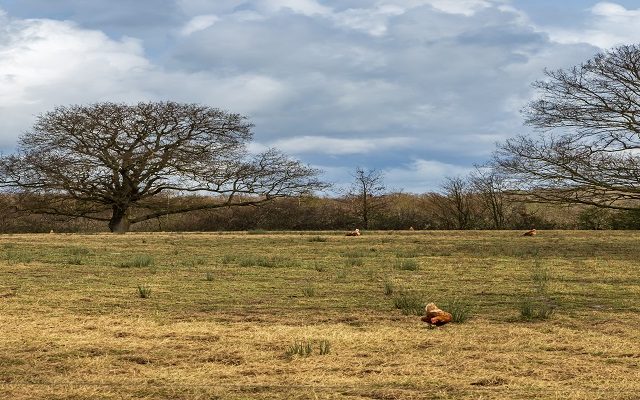Land Business Update | Week Commencing 26th June 2023
Rural economy
Disappointing delivery of the Rural England Prosperity Fund so far
This fund is the only English replacement for the EU-funded rural development funds which were previously available (LEADER, the Growth Programme and Countryside Productivity). Despite announcing that the REPF would open in April 2023, fewer than 20 local authorities out of over 120 awarded funding have launched their grant funding schemes, based on S&P research. If you have a rural diversification or business expansion project for which you would like some funding, please contact Marie Charles to check whether you are in an eligible area for the REPF.
Farming
Scottish Starter Farm Initiative declared a success
The Scottish Government has said that the Initiative, supported by the Farming Opportunities for New Entrants (FONE) Group, has facilitated the entry of more than 80 new entrants to farming, by providing 122 land opportunities on more than 7,000 hectares of land.
Scottish support payments will depend on farms meeting set conditions and practices
The Scottish Government announced at the Royal Highland Show that from 2025 farmers and crofters will be required to adopt the following practices to qualify for some support payments:
- A ‘Whole Farm Plan’ which will include soil testing, an animal health and welfare declaration, a carbon audit, a biodiversity audit and supported business planning.
- Protections for peatlands and wetlands to help store and sequester more carbon.
- New conditions to the Scottish Suckler Beef Support Scheme to increase beef production efficiency, which will help cut emissions intensity.
Rural Affairs Secretary Mairi Gougeon said that the idea behind this update to the ‘route map’ on policy reform is to ensure that high-quality food production is maintained in a way that cuts emissions and helps tackle climate change, and which also avoids cliff edges in support. Mary Munro, our head of farming in Scotland, called for more detail, particularly on the size of the budget and how the new support system will work in practice. She also said that farmers can prepare for the changes by taking advantage of the Preparing for Sustainable Farming (PSF) scheme, which funds carbon audits and detailed soil analysis. PSF is due to end by March 2025. After it, the actions it funded will be part of the productivity baseline for a Whole Farm Plan.
Water management grant in England closing soon
Part of the Farming Transformation Fund, the grant provides funding to arable and horticultural businesses in England for reservoirs, irrigation equipment and technology such as soil moisture levels monitors. Grants range from £35 – 500,000 per business. There is a two-stage application process, with the stage 1 eligibility online checker closing on 12th July 2023. For more information, read our blog post and the Defra guidance can be found here. Contact Abbie Allen if you would like help making an application.
Derogation to spread manure in Nitrate Vulnerable Zones
Farmers can apply for a derogation to use a higher limit of up to 250kg of nitrogen per hectare, if the nitrogen comes from grazing livestock manure. Derogations must be applied for before 4th July 2023 by phoning the Environment Agency on 03708 506 506. A list of the information needed before calling the EA is in this guidance note.
Farming Futures competition closing soon
The competition aims to support innovative solutions to address challenges of biotic (i.e., pests and weeds) and abiotic stresses (i.e., flooding and extreme temperatures). The funding is split into two strands and both close for applications on 19th July:
- Feasibility competition – Grants from £200-500k to evaluate emerging solutions.
- Industrial research competition – Grants from £500k to £1m to develop new products, processes and services.
The funding is open to UK businesses and individuals, and projects must demonstrate a benefit for farmers and foresters in England. Previous projects from the last round include a novel dual-action bio pesticide for wheat and climate-smart beef genetics to reduce methane emissions. Contact Marie Charles to discuss the competition or if you would like help making an application.
Energy
Labour proposes to end ban on onshore wind turbines
The Labour Party has been gradually setting out its policy plans across a broad range of policy areas. Its announcements on energy have been interesting and ambitious:
- End the moratorium on onshore wind turbines. Local residents will not be able to veto new wind farms.
- Increase investment in the green economy annually to £28bn by 2027, which will support targets to more than double onshore wind capacity, triple solar capacity and quadruple offshore wind capacity.
- Create Great British Energy, a new publicly-owned clean power generation firm based in Scotland.
- Create a new National Wealth Fund with £2bn to part-finance low carbon energy investments.
- A rolling programme of electrification to help decarbonise the UK’s transport system.
- Accelerate planning decisions for renewable energy projects to months from years.
- Cut energy bills by up to £400 a year by insulating 19 million homes over the next 10 years.
Environment
Mixed progress for Wales according to the Climate Change Committee
The report states that Wales exceeded its emissions reductions for its first carbon budget (2016 – 2020), which is positive, but warns it is not on track to meet targets for 2025 onwards. The report highlighted that there needed to be much more progress on tree-planting and peatland restoration rates. The Committee did highlight positive progress in some areas, notably the decision to cancel all major road projects on environmental grounds and the focus on skills, jobs and public engagement for the Net Zero transition.
Forestry
Woodland planting targets missed – again
Just under 13,000 hectares of new woodland was planted in the UK in the 12 months to 31st March 2023. This is less than in 2021/22 (13,860 ha) and less than half of the target to create 30,000ha of new woodland annually by 2025. The government put a positive spin on the figures by saying that planting in England was up by about 40% to 3,130 ha, from 2,260 ha, and it also rose in Wales. However, there was a sharp drop in planting in Scotland, which is significant as that is where most woodland planting in the UK typically takes place; 8,190 ha were planted there, compared with 10,480 ha in 2022/23. The reasons for planting being so far below targets are complex and Simon Hart and Hugh Williams in our forestry team explore them in this article. Worryingly, the chair of the Forestry Commission, appears to be repositioning the targets as he called the English target of 7,500 ha of new planting a year an ‘aspiration’ and that the target ‘sets the scene’. More positively, he also said that the Forestry Commission is working hard to speed the system up and that it is going well. The planting targets are an important element of both the nation’s nature recovery strategy and its net zero pathway. The Climate Change Committee has this week said that the UK is getting further from meeting its targets than a year ago. Sobering thoughts for all of us – and our children.
Planning
Ofsted-style ratings proposed to improve quality of housing developments
The government has proposed that councils would assess developments on more than 50 attributes and, based on the score, give them an ‘outstanding’, ‘good’, ‘average’ or ‘poor’ rating, which would become a determining factor in whether schemes are given planning permission.






